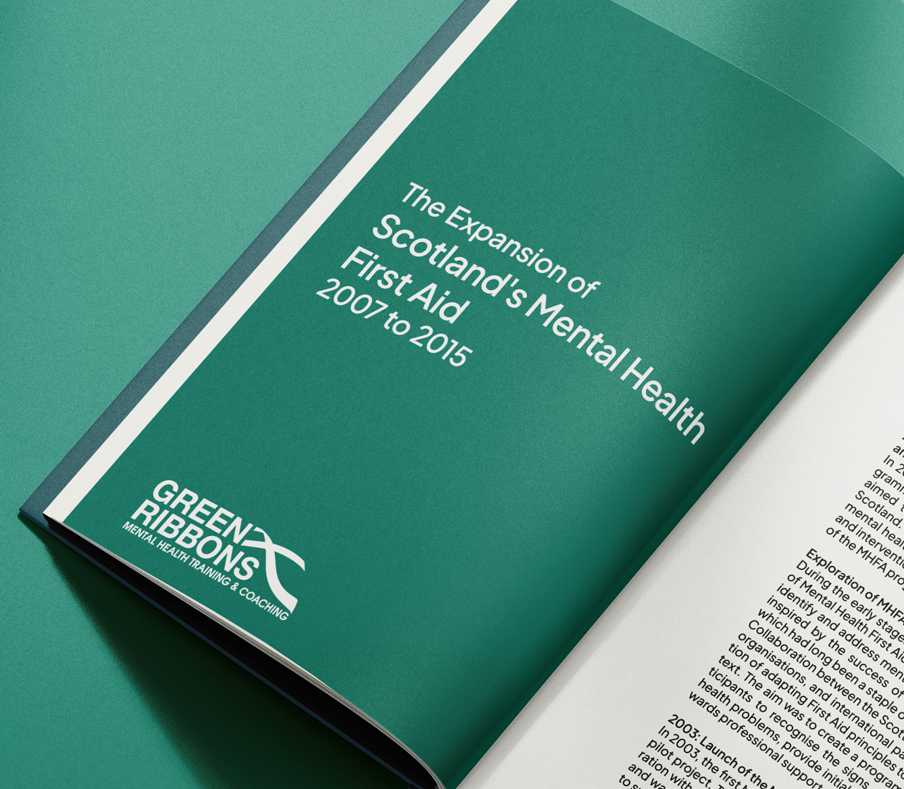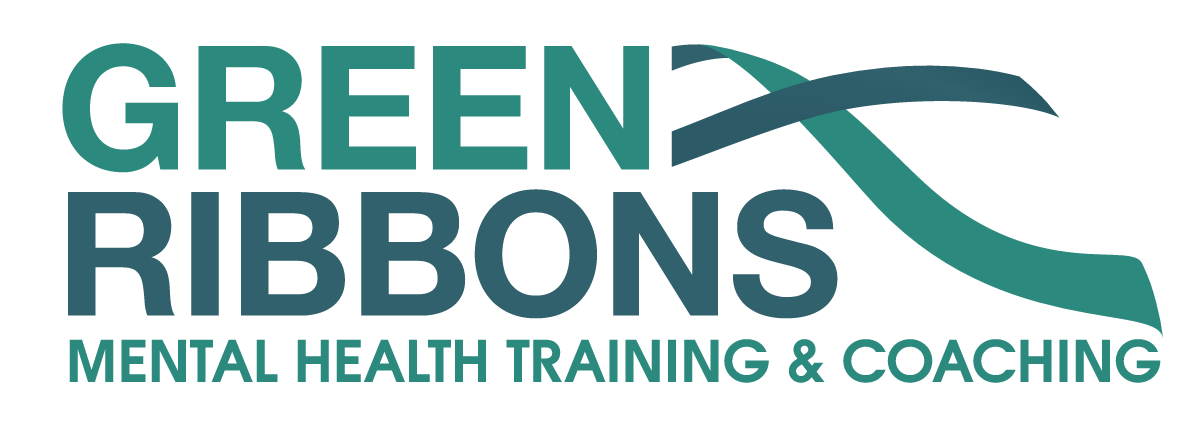The History of Scotland’s Mental Health First Aid

For the past twenty years a program in Scotland has quietly been transforming lives, empowering communities, and breaking down barriers surrounding mental health. This is the story of Scotland’s Mental Health First Aid (SMHFA) program, a pioneering initiative that has emerged as an essential component of the nation’s mental health strategy, changing the way people perceive, discuss, and support mental well-being, and transforming lives along the way.
Born from the innovative marriage of traditional first aid principles and mental health support, the SMHFA program has evolved to address the unique needs of Scotland’s population, reflecting the nation’s character and commitment to mental health. From a pilot project to its current status as a vital part of Scotland’s mental health landscape, the program’s journey has been marked by growth, collaboration, and a steadfast dedication to fostering empathy, resilience, and hope.
What’s on this page?
- Introduction: Global Summary
- Global Mental Health First Aid Timeline
- 2001-2006: The Advent of Scotland’s Mental Health First Aid
- 2007-2015: The Expansion of Scotland’s Mental Health First Aid
- 2016-Present: Building on success, facing down challenges
Introduction: Global Summary
Mental Health First Aid (MHFA) has become an essential tool in addressing mental health concerns in modern society. This life-saving intervention aims to identify, understand, and respond to signs of mental health crises, providing crucial support to individuals experiencing mental health issues. The history of MHFA traces back to its humble beginnings in Australia, gradually evolving into the widespread, internationally recognized program it is today. This page briefly looks into the origins and development of MHFA, highlighting its global impact and significance in promoting mental health awareness and support.
The Birth of Mental Health First Aid: Australia
The origins of MHFA can be traced back to 2000 in Canberra, Australia. Mental health experts and advocates Betty Kitchener, a nurse specialising in health education, and Tony Jorm, a mental health literacy professor, combined their expertise to develop a program to address the gap in mental health support. This initial program laid the foundation for what would become MHFA.
Kitchener and Jorm recognised the importance of training individuals to provide initial support to those experiencing mental health crises, much like how physical first aid is administered for physical injuries. The primary objective was to empower community members to respond effectively to individuals in need, connecting them with appropriate professional help and reducing stigma surrounding mental health issues.
The Expansion of MHFA: Going Global
The early success of MHFA in Australia led to growing international interest. In 2003, Scotland became the first country outside Australia to adopt the program, followed by England, Wales, and Northern Ireland. By 2008, the United States embraced MHFA, with the National Council for Behavioral Health introducing the program nationwide.
Today, MHFA has reached over 25 countries, including Canada, China, France, Germany, India, Japan, and South Africa. Adapted to suit the unique cultural contexts and mental health landscapes of each country, the program has trained millions of individuals in mental health first aid skills worldwide.
Global Mental Health First Aid Timeline
MHFA's Inception in Canberra, Australia - Mental health advocates Betty Kitchener and Tony Jorm developed the first MHFA program to address the lack of mental health support and promote mental health literacy.
MHFA Expands to Scotland - Scotland became the first country outside Australia to adopt the MHFA program, recognising its value in promoting mental health awareness and support.
England, Wales, and Northern Ireland Adopt MHFA - The success of MHFA in Australia and Scotland led to its implementation in other parts of the United Kingdom
MHFA Reaches the United States - The National Council for Behavioral Health introduced MHFA in the U.S., leading to a surge in its popularity and adoption across the country
Rapid Global Expansion - MHFA programs were launched in over 25 countries, including Canada, China, France, Germany, India, Japan, and South Africa. Each country adapted the program to suit its unique cultural contexts and mental health landscapes
Development of Specialised Modules - In response to the diverse needs of different populations, MHFA began developing tailored programs for specific demographics, such as youth, older adults, military personnel, and first responders
Research and Updates - MHFA continues to evolve by incorporating new research, strategies, and understanding of mental health issues to ensure the program remains evidence-based and effective
The Advent of Scotland’s Mental Health First Aid
- The National Programme for Improving Mental Health and Well-being
- Launch of the MHFA Pilot Project
- Expansion and Integration

2001: The National Programme for Improving Mental Health and Well-being
In 2001, the Scottish Executive published the National Programme for Improving Mental Health and Well-being, which aimed to address the alarming mental health statistics in Scotland. The program sought to create a comprehensive mental health strategy that included awareness, prevention, and intervention, laying the groundwork for the development of the MHFA program.
Exploration of MHFA Concept
During the early stages of the National Programme, the idea of Mental Health First Aid emerged as a potential tool to help identify and address mental health issues. The concept was inspired by the success of conventional First Aid training, which had long been a staple of emergency response.
Collaboration between the Scottish Executive, mental health organisations, and international partners led to the exploration of adapting First Aid principles to the mental health context. The aim was to create a program that would teach participants to recognise the signs and symptoms of mental health problems, provide initial help, and guide a person towards professional support.
2003: Launch of the MHFA Pilot Project
In 2003, the first MHFA course was launched in Scotland as a pilot project. The course content was developed in collaboration with experts from various mental health organisations and was adapted from the original Australian MHFA program to suit the Scottish context.
The pilot program aimed to assess the feasibility and effectiveness of the MHFA concept in Scotland. The initial course focused on training individuals to recognise and respond to common mental health issues, such as depression, anxiety, and psychosis, as well as providing support for individuals experiencing suicidal thoughts or engaging in self-harm.
2004-2006: Expansion and Integration
Following the success of the pilot program, the MHFA training was refined and expanded across Scotland. The courses were made more widely available to various organisations, including healthcare providers, workplaces, educational institutions, and community groups.
In 2006, the Scottish Government formally integrated MHFA into the National Programme’s wider strategy for mental health improvement. The integration marked a significant milestone for MHFA in Scotland, as it became an essential component of the country’s efforts to address mental health issues and promote well-being.
Throughout this period, the Scottish MHFA program continued to evolve and adapt to the unique needs of the population. Specialised courses were developed to cater to different groups, such as Youth Mental Health First Aid (YMHFA) and tailored training for specific professional groups like teachers, healthcare workers, and emergency responders.
The advent of Scotland’s Mental Health First Aid program between 2001 and 2006 was marked by a series of milestones, from the development of the National Programme for Improving Mental Health and Well-being to the launch of the pilot project and subsequent expansion of MHFA courses across the country. This period was instrumental in establishing MHFA as a vital component of Scotland’s mental health strategy and a valuable tool in promoting mental well-being throughout the nation.
The Expansion of Scotland’s Mental Health First Aid
- Expansion and Diversification
- Towards a Mentally Flourishing Scotland
- MHFA in the Workplace and Education
Following the integration of Mental Health First Aid (MHFA) into Scotland’s National Programme for mental health improvement in 2006, the years between 2007 and 2015 marked a period of expansion, diversification, and increased recognition for the program. This era saw the growth of MHFA in Scotland in terms of its scope, impact, and presence in various sectors of society.

2007-2009: Expansion and Diversification
During these years, the Scottish MHFA program continued to broaden its reach, with a focus on making the training more accessible to different segments of the population. Specialised courses were developed and expanded, such as Youth Mental Health First Aid (YMHFA) and tailored training for specific professional groups like teachers, healthcare workers, and emergency responders.
Moreover, efforts were made to increase the cultural relevance and sensitivity of the program. This included addressing the mental health needs of diverse communities within Scotland, such as the LGBTQ+ community, ethnic minority groups, and people with disabilities.
Integration with Mental Health Initiatives
The MHFA program also played a significant role in other mental health initiatives in Scotland during this period. For example, the “See Me” campaign, launched in 2002, aimed to tackle mental health stigma and discrimination. MHFA contributed to the campaign by providing individuals with the skills and knowledge to support those affected by mental health issues, fostering empathy and understanding within communities.
2010: Towards a Mentally Flourishing Scotland
In 2010, the Scottish Government published a new mental health strategy, “Towards a Mentally Flourishing Scotland.” This strategy placed greater emphasis on prevention, early intervention, and recovery. MHFA was recognised as a vital component of this vision, with its focus on early identification and support for individuals experiencing mental health issues.
The new strategy set the stage for further growth and development of the MHFA program in Scotland. It reinforced the importance of MHFA training and encouraged organisations and individuals to invest in developing mental health awareness and support networks.
2011-2014: MHFA in the Workplace and Education
During this period, the MHFA program gained increased recognition in workplace settings across Scotland. Many organisations recognised the value of having trained Mental Health First Aiders among their staff, leading to a more supportive and understanding work environment. Employers began to understand the importance of promoting mental well-being in the workplace, which led to increased productivity, employee satisfaction, and reduced absenteeism due to mental health issues.
Furthermore, the MHFA program began to make inroads in the education sector, with schools and colleges incorporating MHFA training for teachers and staff. This integration aimed to create a more supportive environment for students, helping them navigate the unique mental health challenges they may face during their academic journey.
2015: Evaluation and Impact
A study conducted in 2015 by the University of Aberdeen assessed the impact of the MHFA program in Scotland. The study found that MHFA training led to increased confidence and knowledge in supporting others with mental health problems. Participants reported feeling more empowered to help others and noted improvements in their own mental well-being as a result of the training. This research validated the effectiveness of MHFA and provided valuable insights into how the program could be further improved and expanded.
The years between 2007 and 2015 marked significant growth and development for Scotland’s Mental Health First Aid program. During this period, the program expanded its reach, diversified its offerings, and became more deeply integrated with various mental health initiatives and sectors, such as the workplace and education. This era solidified MHFA’s role as a vital component of Scotland’s mental health landscape, making a tangible impact on the well-being of individuals across the nation.
Building on success, facing down challenges
- New Mental Health Strategy
- Further Expansion and Integration
- COVID-19 Pandemic and Mental Health
- Ongoing Development
From 2016 to the present, the story of Scotland’s Mental Health First Aid (MHFA) program has continued to focus on expansion, improvement, and innovation. Building on the success of the previous years, MHFA has further solidified its role in Scotland’s mental health landscape, with increased recognition, funding, and support from various stakeholders.

2016-2017: New Mental Health Strategy
In 2017, the Scottish Government launched a new 10-year mental health strategy, which aimed to improve mental health services and address mental health issues proactively. The MHFA program was recognised as an essential component of this strategy, with a focus on early intervention, prevention, and community-based support.
This new strategy led to increased funding and support for the MHFA program, enabling it to expand its reach, develop new training materials, and update existing resources to better serve the evolving needs of the Scottish population.
2018-2020: Further Expansion and Integration
During this period, the MHFA program continued to expand its presence in various sectors of Scottish society. More organisations, including businesses, schools, and community groups, embraced the importance of mental health support and invested in MHFA training for their employees and members.
The integration of MHFA into the education sector deepened, with increased emphasis on supporting students’ mental well-being and providing teachers with the necessary tools to identify and address mental health issues among their students. This focus on early intervention and prevention in the education sector has contributed to the overall improvement of mental health outcomes for young people in Scotland.
Moreover, MHFA training was increasingly recognised as an essential component of emergency responder training, ensuring that police officers, paramedics, and firefighters were equipped to support individuals experiencing mental health crises.
2020: COVID-19 Pandemic and Mental Health
The COVID-19 pandemic has had a significant impact on mental health worldwide, and Scotland was no exception. The increased demand for mental health support and resources during this challenging period has reinforced the importance of the MHFA program. The pandemic highlighted the need for mental health awareness and support networks in the community, and MHFA has played a crucial role in addressing this demand.
In response to the pandemic, MHFA courses were adapted to be delivered online, making the training more accessible to a broader range of individuals. This adaptation also allowed for increased flexibility and convenience for those seeking MHFA training during the pandemic and beyond.
Present Day: Ongoing Development and Challenges
As of now, the MHFA program in Scotland continues to evolve to meet the ever-changing mental health landscape, with efforts being made to increase accessibility for all those who wish to participate in MHFA training. Refresher courses and ongoing support are vital to ensuring that individuals who have completed MHFA training continue to stay current with best practices and can provide effective support to those in need.
The story of Scotland’s Mental Health First Aid program from 2016 to the present has been marked by continued growth, expansion, and innovation. The program has solidified its role as an essential component of Scotland’s mental health strategy, with a focus on early intervention, prevention, and community-based support. Despite the challenges posed by the COVID-19 pandemic the MHFA program remains a vital resource in promoting mental well-being and support for individuals across Scotland.







